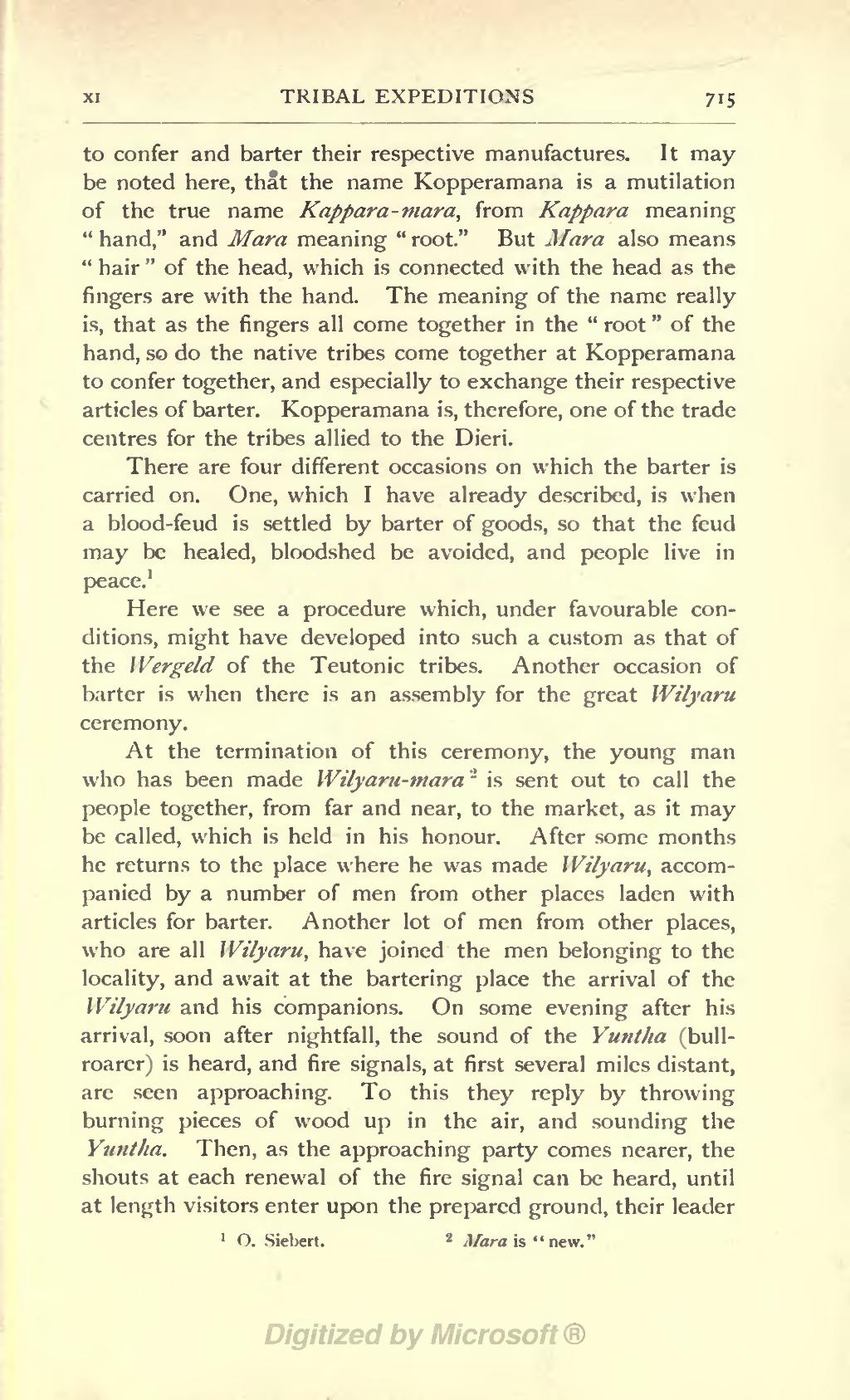to confer and barter their respective manufactures. It may be noted here, that the name Kopperamana is a mutilation of the true name Kappara-mara, from Kappara meaning "hand," and Mara meaning "root." But Mara also means "hair" of the head, which is connected with the head as the fingers are with the hand. The meaning of the name really is, that as the fingers all come together in the "root" of the hand, so do the native tribes come together at Kopperamana to confer together, and especially to exchange their respective articles of barter. Kopperamana is, therefore, one of the trade centres for the tribes allied to the Dieri.
There are four different occasions on which the barter is carried on. One, which I have already described, is when a blood-feud is settled by barter of goods, so that the feud may be healed, bloodshed be avoided, and people live in peace.[1]
Here we see a procedure which, under favourable conditions, might have developed into such a custom as that of the Wergeld of the Teutonic tribes. Another occasion of barter is when there is an assembly for the great Wilyaru ceremony.
At the termination of this ceremony, the young man who has been made Wilyaru-mara[2] is sent out to call the people together, from far and near, to the market, as it may be called, which is held in his honour. After some months he returns to the place where he was made Wilyaru, accompanied by a number of men from other places laden with articles for barter. Another lot of men from other places, who are all Wilyaru, have joined the men belonging to the locality, and await at the bartering place the arrival of the Wilyaru and his companions. On some evening after his arrival, soon after nightfall, the sound of the Yuntha (bull-roarer) is heard, and fire signals, at first several miles distant, are seen approaching. To this they reply by throwing burning pieces of wood up in the air, and sounding the Yuntha. Then, as the approaching party comes nearer, the shouts at each renewal of the fire signal can be heard, until at length visitors enter upon the prepared ground, their leader
